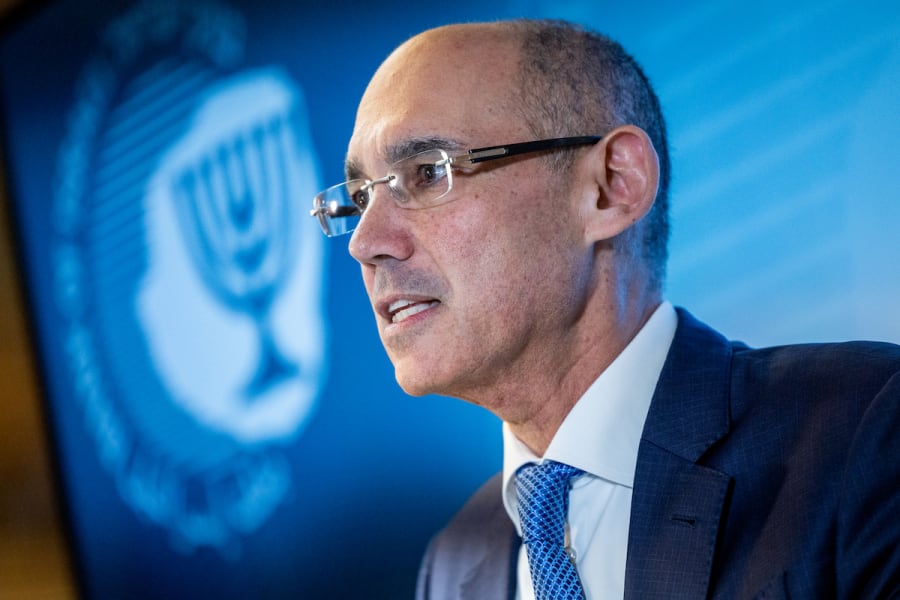Bank of Israel keeps interest rate steady amidst moderating inflation

The Bank of Israel has opted to maintain its benchmark interest rate at 4.75% for the second consecutive time, reinforcing market expectations and aligning with the consensus among leading economists. The decision comes after a series of consecutive rate hikes that began in April 2022.
The move to keep rates unchanged reflects the central bank's cautious approach in response to evolving economic conditions and particularly, moderating inflation. Inflationary pressures in Israel have seen a significant downturn recently, with the consumer price index for July showing a surprise drop from 4.2% to 3.3%, contrary to early forecasts which anticipated a 3.4% annual inflation rate.
Leader Capital Markets offered insights into the Bank of Israel's decision, citing the easing inflation environment as a key factor. Core inflation in July fell to 3.6% from 4.5% in June, and prices for both goods and services, including housing services, have moderated. The May-July indices have remained lower than forecasters' average expectations.
A noteworthy trend is the decline in per capita credit card purchases, which decreased by 0.7% during the May-July period, according to annualized trend data. This decline has been attributed to wage erosion and the impact of high interest rates. Although the labor market appears robust, with the unemployment rate dropping to 3.0% for those aged 25-64 in July.
However, some experts see inflation picking up in the near term. Israeli investment banking and financial advisory firm Leader Capital Markets anticipates two forthcoming inflation indices, for August and September. They are anticipating them to push the annual rate closer to 4.0% and core inflation to 3.8%, up from 3.6% in July. This expected increase is attributed to the surge in tourism-related spending in July following the easing of COVID-19 restrictions.
The economic landscape is expected to continue exhibiting moderation, including signs of weakness in the labor market. On the flip side, there appears to be sustained pressure for shekel devaluation, especially in light of the High Court's impending discussion regarding the legislation related to the judicial reform, scheduled for September 12. Additionally, the uncertainty surrounding the appointment of the governor of the Bank of Israel in 2024 adds a layer of complexity. Therefore, Leader Capital Markets currently assigns a 40% probability of an interest rate increase in October.
The Bank of Israel's decision to maintain the status quo reflects the delicate balance it must strike between stimulating economic growth and managing inflationary risks in an evolving economic landscape. With inflation dynamics and external pressures on the horizon, the central bank's stance remains subject to change as it continues to monitor economic developments closely.
This article originally appeared here and is reposted with permission.

Isranomics.com is a website that takes a unique look at Israel's economy, business, and innovations. It gives an overview of what's going on in the country's financial markets and provides its readers with useful information about Israeli companies that work in Israel and around the world. It is a good source of information for anyone who wants to get to know Israel from a non-political point of view.












